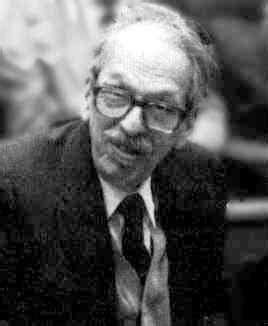A Quote by Tracy K. Smith
I think the way poems are taught to high school students is completely counterintuitive; it sets up this sense of being the poem's adversary. The poem is sort of sneakily trying to outsmart you.
Related Quotes
The subject of the poem usually dictates the rhythm or the rhyme and its form. Sometimes, when you finish the poem and you think the poem is finished, the poem says, "You're not finished with me yet," and you have to go back and revise, and you may have another poem altogether. It has its own life to live.
I think that the casual reader and the lyric and confession are trickily tied up together. I mean often when I read my students' poems my first impulse is to say, "O, the subject of this pronoun, this 'I,' is whatever kid wrote this poem." The audience for lyric poems is "confessionalized" to some extent. And I think this audience tends to find long narrative poems, for instance, kind of bewildering.
It was early on in 1965 when I wrote some of my first poems. I sent a poem to 'Harper's' magazine because they paid a dollar a line. I had an eighteen-line poem, and just as I was putting it into the envelope, I stopped and decided to make it a thirty-six-line poem. It seemed like the poem came back the next day: no letter, nothing.
A poem, being an instance of language, hence essentially dialogue, may be a letter in a bottle thrown out to the sea with the-surely not always strong-hope that it may somehow wash up somewhere, perhaps on the shoreline of the heart. In this way, too, poems are en route: they are headed towards. Toward what? Toward something open, inhabitable, an approachable you, perhaps, an approachable reality. Such realities are, I think, at stake in a poem.
In high school I went to the Los Angeles County High School for the Arts. And this is like Fame. It's like that sort of prototypical, dancers in the hallway, theater students, musical students, art geeks. And it was a kindergarten in the truest sense of the world: a children's garden where I was able to sort of really come into myself as an artist, as a person, sexuality issues - like, all of this became something where there was a firming-up and a knowing that went on.
The judges who awarded the 1980 Commonwealth Poetry Prize to my first collection of poems, Crossing the Peninsula and Other Poems, cited with approval and with no apparent conscious irony my early poem, "No Alarms." The poem was composed probably sometime in 1974 or 1975, and it complained about the impossibility of writing poetry - of being a poet - under the conditions in which I was living then.
I just think that the world of workshops - I've written a poem that is a parody of workshop talk, I've written a poem that is a kind of parody of a garrulous poet at a poetry reading who spends an inordinate amount of time explaining the poem before reading it, I've written a number of satirical poems about other poets.
I have taught the long poem off and on for years. The more book-length poems I read and studied and taught the more interested I was in the possibilities in writing a poetry that applied formal and substantive options of narrative and non-narrative, lyric and non-lyric. I found many pleasures in this kind of writing. The long poem is as old as the art form.




































